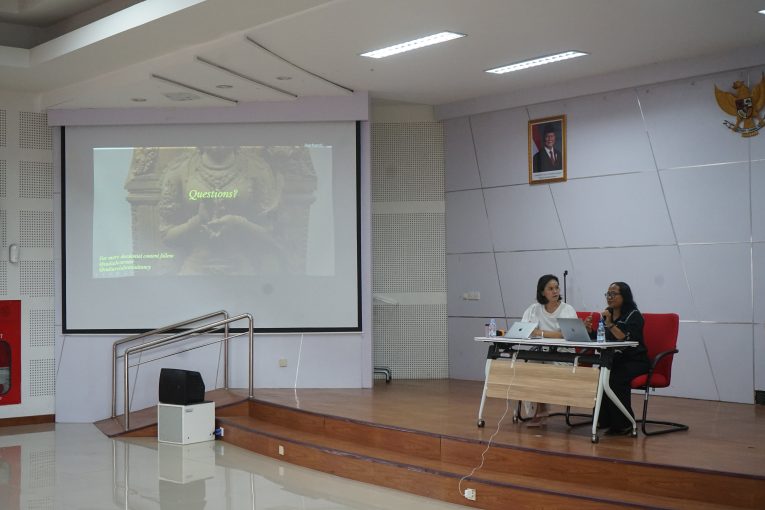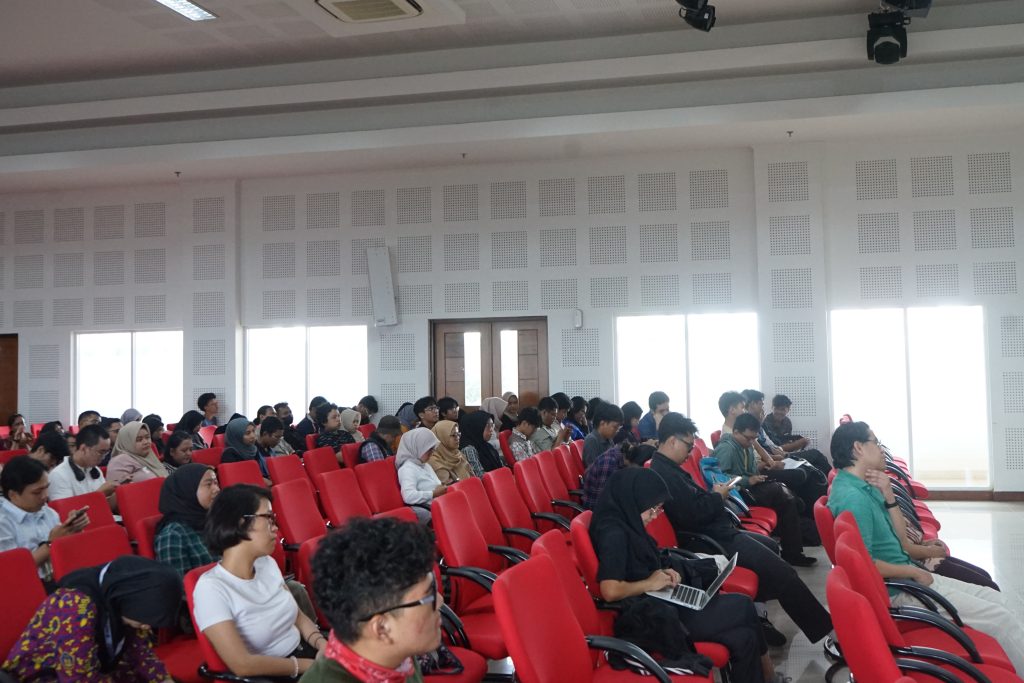
Following the launching of the research project on Lombok Heritage, the Department of History, Universitas Gadjah Mada (UGM) hosted a public lecture titled “Beyond the Point of No Return: The Re-Emergence of Indonesian Debates and Concepts on the Return of Cultural Objects”. The public lecture was delivered by Dr. Sadiah Boonstra, a historian and curator, as well as the founder of CultureLab Consultancy. She is also one of the postdoctoral researchers within the Indonesia-Netherlands research consortium focused on the Lombok Heritage.
The lecture was formally opened by the Head of the Department of History, Dr. Abdul Wahid, M.Phil., who delivered the opening remark and introduced the research project on Lombok Heritage, led by Professor Bambang Purwanto (UGM) and Professor Ihab Saloul (Universiteit van Amsterdam).
Dr. Boonstra’s lecture showed a rich tapestry of historical context, cultural nuance, and contemporary debate about the returned objects. She commenced her presentation with a chronological examination of the repatriation of objects to Indonesia in 1931, which objects consisted of the regalia to the Bone Sultanate. Another repatriation of cultural objects took place in post-independence Indonesia, driven by the spirit of decolonization. Consequently, numerous repatriations were undertaken following complex negotiations, which brought back the Lombok Treasures, Klungkung Collections, Negarakertagama, and other objects to Indonesia. By tracing the chronology of collection returns, Dr. Boonstra illuminated the complex interplay of colonial legacy and decolonial movement that has shaped the trajectory of cultural heritage management.
As she discussed the underlying issues in the process of the return of cultural objects, Dr. Boonstra revealed the intersection of power, ownership, and cultural authority that have long been embedded in the museological landscape. The decolonialization, the dispossession of indigenous cultures, and the contested meanings of cultural heritage all emerged as critical themes in this narrative. Dr. Boonstra also highlighted the limitations of the government-to-government (G-to-G) process of repatriation, which according to her observation often prioritizes state-level negotiations over community-level engagement. This approach, she argued, can perpetuate the subordination of local communities with a profound emotional and cultural attachment to the objects in question.
The lecture attracted great interest from the audience. Several questions were about the practical aspects of the return process, inquiring about the logistics of transporting heritage objects, ensuring their safety and security, and navigating the complex bureaucratic procedures involved. In this context, Dr. Boonstra emphasized that the public might have different perspectives on this issue. Therefore, she noted that acknowledging and addressing these concerns is crucial in building trust and fostering a collaborative approach to repatriated object management in Indonesia.
In posing the question “what is next?” Dr. Boonstra gestured towards a future of collaborative research, inclusive dialogue, and innovative practice in cultural heritage management. She emphasized the importance of local engagement, highlighting the need to amplify the voices and perspectives of local communities in the repatriation process. Repatriation, she argued, should not be merely a matter of returning objects, but rather an opportunity to rebuild relationships between local communities, Indonesia as the nation-state, and the objects themselves, as part of a broader effort towards decolonialization. Hence, the research project on Lombok Heritage, emerged as a beacon of hope, promising to illuminate new pathways for the return, restitution, and reinterpretation of cultural objects.
In conclusion, Dr. Sadiah Boonstra’s lecture is pivotal for the ongoing conversation about cultural heritage management in Indonesia. As the nation continues to grapple with the complexities of its cultural past, this lecture served as a powerful reminder of the need for nuanced understanding, collaborative effort, and inclusive dialogue in shaping inclusive and equitable heritage management and understanding.

